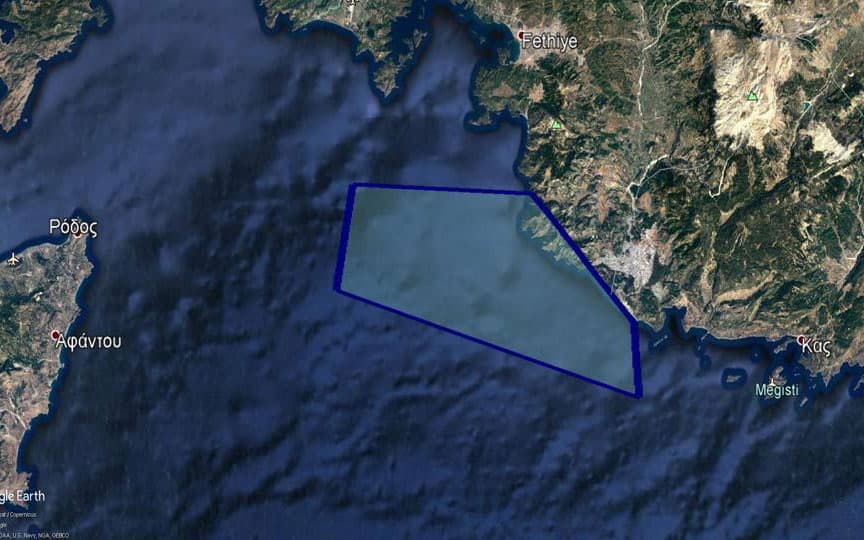Posted for fair use.....
What exactly is going on, who is winning and what has this conflict taught generals about modern air combat?

www.defensenews.com
NATO Air Power
Libya is turning into a battle lab for air warfare
By:
Tom Kington 1 day ago
The U.S. military in June published imagery that officials said show Russian aircraft being used to support private military companies sponsored by the Russian government to fight in the Libyan war. (U.S. Defense Department)
ROME — During Libya’s proxy war this year, the skies over the North African country have filled with Turkish and Chinese drones, Russian MiG 29s and Sukhoi 24s and Emirati Mirage 2000s — reportedly — with Turkish F-16s and Egyptian Rafales waiting in the wings.
Russian air defense systems have taken down drones while fighters, civilians and air bases have been bombed by jets as C-130s and Turkish A400M aircraft keep up deliveries of new weaponry and fighters into the country.
In short, Libya has been transformed this year into something of an air warfare laboratory, begging the question, what exactly is going on, who is winning and what has this conflict taught generals about modern air combat?
“On one level, Libya yet again simply underscores the value of air power – you do not want to get in a fight without it,” said Douglas Barrie, Senior Fellow for Military Aerospace at the International Institute for Strategic Studies in London.
The conflict in lawless Libya began to escalate in April 2019 as local strongman General Khalifa Haftar launched his campaign to take the capital Tripoli. Backed by Egypt, the United Arab Emirates, Russia and France, he felt confident going up against the UN-recognized government in Tripoli backed by Turkey, Italy and Qatar.
In April last year, Chinese Wing Loon II drones operated by the UAE bombed civilian targets in the city, reflecting the recent, and rapid, procurement of Chinese drones around the Middle East.
“The Chinese have been adept at selling drones in the Middle East, including to Saudi Arabia, the UAE, Egypt and Iraq. With the US previously constrained in selling systems, the Chinese saw a gap in the market,” said Barrie.
Men walk past a Chinese-made CAIG Wing Loong II medium-altitude, long-endurance UAV, on display during the Dubai Airshow on Nov. 18, 2019. (Karim Sahib/AFP via Getty Images)
Sign up for our Early Bird Brief
Get the defense industry's most comprehensive news and information straight to your inbox
Turkey has proved the exception. Around May 2019, it introduced its own TB2 drone into the fray, attacking Haftar’s forces, knocking out Russian Pantsir air defense systems supporting him and helping end his ambitions to take Tripoli.
“Turkey has majored in UAV design and manufacture and likely used Libya in part as a test and adjust battle lab, and its systems are now ‘combat proven’. Its industry, like Roketsan, has also developed small, precision-guided munitions for UAVs,” Barrie said.
A second analyst said Turkey’s use of its TB2 in Libya had been a game changer. “Turkey decided it was okay to lose them from time to time, that they were semi-disposable, and that novel approach caught their enemy off guard,” said Jalel Harchaoui at the Clingendael Institute in Holland.
The reason? Cost. “They used to cost the Turks $1-1.5 million apiece to build, but thanks to economies of scale as production volumes rose, the cost has dropped to below $500,000, excluding the control station,” said Harchaoui.
He added that software and other technical changes had boosted the TB2′s efficiency and reconnaissance capabilities, which allowed them to find the right altitude to avoid the Russian Pantsir systems.
“The performance of the Wing Loon II’s in the hands of the UAE has meanwhile been largely static. They didn’t evolve, so they have been much less impressive,” he said.
Barrie said Libya was another example of the normalization of drone use in modern warfare.
“UAVs are a capability now pursued by state and non-state actors alike. Obviously states can afford more capable, larger systems, while non-state actors may have to make do with home-built systems akin to being made with Radio Shack-like components, or acquiring systems from state sponsors.”
He added, “In Libya UAVs have suited this kind of ugly, attritional warfare against small, lightly armed units.”
The use of manned fighters in Libya has meanwhile been characterized by major powers sending them in on the quiet, with no announcement.
Last July, a missile strike on a migrant center near Tripoli which killed 53 was likely the work of the UAE, the BBC has reported, quoting a confidential UN investigation.
/arc-anglerfish-arc2-prod-mco.s3.amazonaws.com/public/JOR4EPHUGVA35PACC3MHCRIMMM.jpg) Italy confirms military drone crashed in Libya
Italy confirms military drone crashed in Libya
After reports of the incident began to circulate on the internet Wednesday, the Italian military general staff confirmed that “contact was lost with an Italian Air Force drone, which subsequently crashed in Libyan territory.”
By: Tom Kington
Analyst Harchaoui alleged that UAE Mirage 2000-9 aircraft flying out of an Egyptian base had been supporting Haftar periodically since June 2019.
“Misrata airbase, which has hosted Turkish TB2 drones, was bombed multiple times last year by Emirati drones and jets until the Turks brought in Korkut and MIM-23 Hawk air defense systems. The raids over Misrata stopped in 2020 – probably because the UAE did not want to see a captured pilot show up tortured on Facebook,” he said.
On July 4, fighter jets attacked Al-Watiya air base, just after Turkey had brought in its MIM-23 Hawk air defense missiles there.
“Sonic booms heard over Sebha, in southwest Libya, suggest the aircraft took off from Egypt then flew to Libya via the Sahara to avoid being spotted by Turkish frigates off the Libyan coast,” said Harchaoui.
“Could it have been Egyptian Rafales? They are good but don’t have enough experience for an ultra-precise mission like this. French pilots flying Egyptian Rafales is unlikely in case one was captured, leaving the UAE Mirages as most likely,” he said.
“Of all the Gulf states, the UAE is the most capable of this kind of mission – they have the combat experience and could do this,” added Barrie.
The Turkish Bayraktar TB2 drone is shown Dec. 16, 2019, at Gecitkale Airport in Famagusta in the self-proclaimed Turkish Republic of Northern Cyprus. (Birol Bebek/AFP via Getty Images)
Meanwhile, the U.S. military command in Africa reported in late May that satellite imagery showed Russian aircraft arriving in Libya to support Haftar.
USAFRICOM said, “At least 14 MiG-29s and several Su-24s were flown from Russia to Syria, where their Russian markings were painted over to camouflage their Russian origin.”
The aircraft are reportedly being used to support the Wagner Group, a Russian-sponsored mercenary operation on the ground in Libya which Moscow denies links to.
The American command warned the aircraft might be flown by “inexperienced” mercenaries who “will not adhere to international law.”
According to Harchaoui, eye witnesses in Libya reported a number of misses notched up during bombing raids by the aircraft. “That suggests they were not Russian air force pilots,” he said.
This summer the conflict has slowed, as Haftar’s forces retreat from Tripoli and take up position to fight for the coastal city of Sirte, which is key to controlling Libya’s oil trade. With Al-Watiya airbase now repaired and back in business after the July air raid, Turkey may be considering basing its F-16s there, finally giving it a beach head for fighters in Libya.
Bringing in American-built aircraft could however rely on the say-so of the U.S.
“Is the U.S. so concerned about Russia’s intervention in Libya it would support the deployment of Turkish F-16s to stop it?” said Harchaoui. “Or will it come down on the side of Egypt, which is a US ally? The ball is in its court.”
Recommended for you
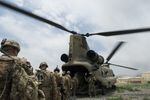 Boeing wins $265 million to build more special ops Chinook helos
Boeing wins $265 million to build more special ops Chinook helos
 Pentagon nominee slams the US Navy’s fleet plans as ‘not a credible document’
Pentagon nominee slams the US Navy’s fleet plans as ‘not a credible document’
 UK facilities for American F-35 jets are delayed and over budget
UK facilities for American F-35 jets are delayed and over budget
 Senate hearing canceled for controversial Pentagon nominee Anthony Tata
Senate hearing canceled for controversial Pentagon nominee Anthony Tata







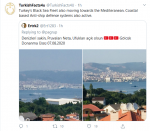
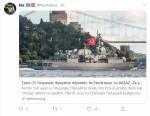
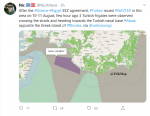

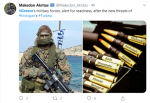
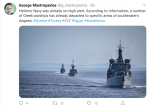


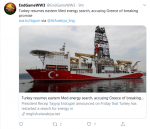
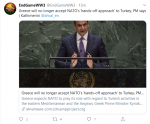
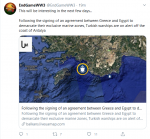
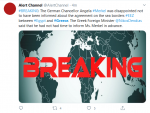
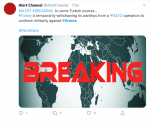
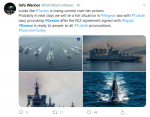
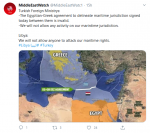
:quality(70)/cloudfront-us-east-1.images.arcpublishing.com/archetype/FGBWDHP5JVDDFGSTVNWEG3E7RY.jpg)
/cloudfront-us-east-1.images.arcpublishing.com/mco/FGBWDHP5JVDDFGSTVNWEG3E7RY.jpg)
/arc-anglerfish-arc2-prod-mco.s3.amazonaws.com/public/JOR4EPHUGVA35PACC3MHCRIMMM.jpg)









